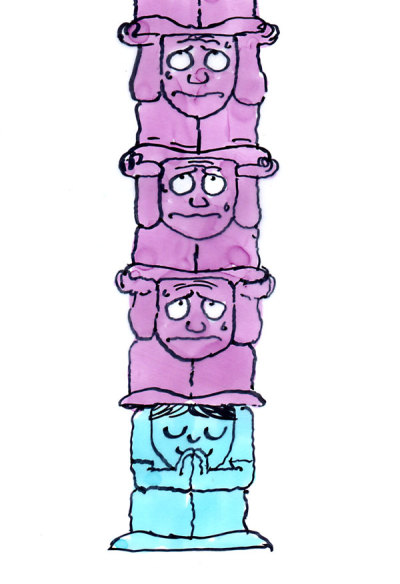Our culture has grown more angry and profane — but this is what God still expects of us…

Walk into any bookstore and browse the titles. You’ll be shocked by how many contain four letter words. In the past year or so, publishers have introduced shock value to their book covers. Sometimes the words are spelled out in all their ugliness, and other times a letter is replaced with an asterisk.
It reflects a coarsening of culture. It’s a sign of how we’re relating to one another, speaking to each other, and treating others in our lives. Social standards are declining, and fewer parents are raising children to be polite.
Ask anyone who deals with people all day and they will tell you that people react more quickly and become rude, angry, abusive, demanding, cynical, sarcastic and profane.
I can explain it in one phrase: the loss of biblical love.
When the Bible talks about love, it isn’t speaking of a nebulous force. It’s talking about how we obey God and treat each other. There’s a verse spelling this out in practical terms — Micah 6:8: “He has shown you, O man, what is good; and what does the Lord require of you but to do justly, to love mercy, and to walk humbly with your God?”
Notice what Micah didn’t say. He didn’t say God had told us what is good. Yes, God does tell us that again and again; but Micah used the word “shown.” By His own actions, God has set the standard for our lives, behavior, words and attitudes.
As the Lord has shown us, so we should do — and this is the essence of biblical love. Let’s zero in on the three qualifiers of Micah 6:8. They represent God’s great expectations of us. They are His values in a nearly valueless world.
Act justly
What does it mean to act justly? James 1:27 describes it like this: “Pure and undefiled religion before God and the Father is this: to visit orphans and widows in their trouble, and to keep oneself unspotted from the world.” I think we sometimes make a small mistake whenever we read that verse.
We sometimes think James was limiting our concern for justice to those who are widows and orphans. I believe he was giving us a broader description, telling us to be especially sensitive to an entire category of humanity — those who have trouble caring for themselves.
Some of these people are close to home. They are our neighbors or family members. Some are those we pass on campus, in the streets, alongside the highways and byways of life. They wander into our lives, or sometimes we have to purposely wander into theirs.
Those connections spark and flicker with biblical love like electrical connections
Love mercy
Closely associated with acting justly is loving mercy. Some of those who need our moral and upright and godly concern are not particularly lovable.
But loving someone who is unlovable doesn’t mean endorsing their attitudes or actions. I’ve preached or written about this many times. We can forgive someone of their sins and release our bitterness toward them without condoning their misbehavior. In truth, I think only a biblical Christian knows how to navigate this, because it’s godlike. Our Lord never condones sin, yet He loves to show mercy.
Remember, too, that mercy isn’t reserved merely for those needing our forgiveness. We can show mercy to anyone needing help.
Walk humbly
It’s not enough to be humble. We must also walk with God. And it’s not enough to walk with God; we must do so humbly. Put those ideas together — put the entire verse of Micah 6:8 together — and you have a four-letter word you’re not ashamed of — LOVE.
We should be living up to God’s standards for us, not the standards of today’s culture. Where man expects little, God expects much. But what He expects, He also enables us to do through our living, growing relationship with Christ.
Our Heavenly Father has given us this glorious and great expectation: To do justly, to be merciful, and to walk humbly with our just, merciful, and humble Savior. So let’s do it.
Dr. David Jeremiah is among the best known Christian leaders in the world. He serves as senior pastor of Shadow Mountain Community Church in El Cajon, California and is the founder and host of Turning Point. Turning Point‘s 30-minute radio program is heard on more than 2,200 radio stations daily. A New York Times bestselling author and Gold Medallion winner, he has written more than fifty books.




















